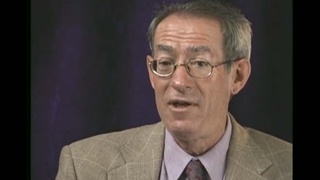Interviews
Draft resisters sent to jail
Anyway, the sixty-three had their trial during that period and uh, after they were found guilty we uh contacted the three that hadn’t, they had found an appeal and uh, the Pallot (?) Court rendered their decision uh, a few months, didn’t take too long, a few months after that but they uh, they uh, did not reverse their convictions. Uh, in fact one of the uh, judges intimated that the U.S. government is wrong too ‘cause the judge said “Two wrongs do not make a right.” Inferring that the government was also doing something wrong. So uh after that, their case was taken up to the U.S. Supreme Court, but that court refused to uh review the case. So their appeal process ended at that point.
But later in 1947, President Truman gave all the Japanese-Americans draft resisters a blanket pardon, restoring all their civil rights and political rights. So in fact they came out valiant (?) although they had spent their entire time uh, less than their regular statutory time for good behavior, uh they spent about 27-8 months, and the reason for that was, you know usually they can get out on parole, after one third of their sentence is finished, but uh, what’s his name the director of the uh WRA, Myers, Bill Myers, written a letter to the board of prisons asking the boys not be let out on parole because it would be bad for the morale of the camps. That’s why they had to spend the uh entire time there except for the time off for good behavior. And it was after they were convicted and sent to uh prison, 63, of the 63, 33 of the younger men were sent to McNeal and the older men were sent to Leavenworth Federal Penitentiary, in the uh, Kansas.
Date: May 9, 2006
Location: California, US
Interviewer: Lisa Itagaki
Contributed by: Watase Media Arts Center, Japanese American National Museum








